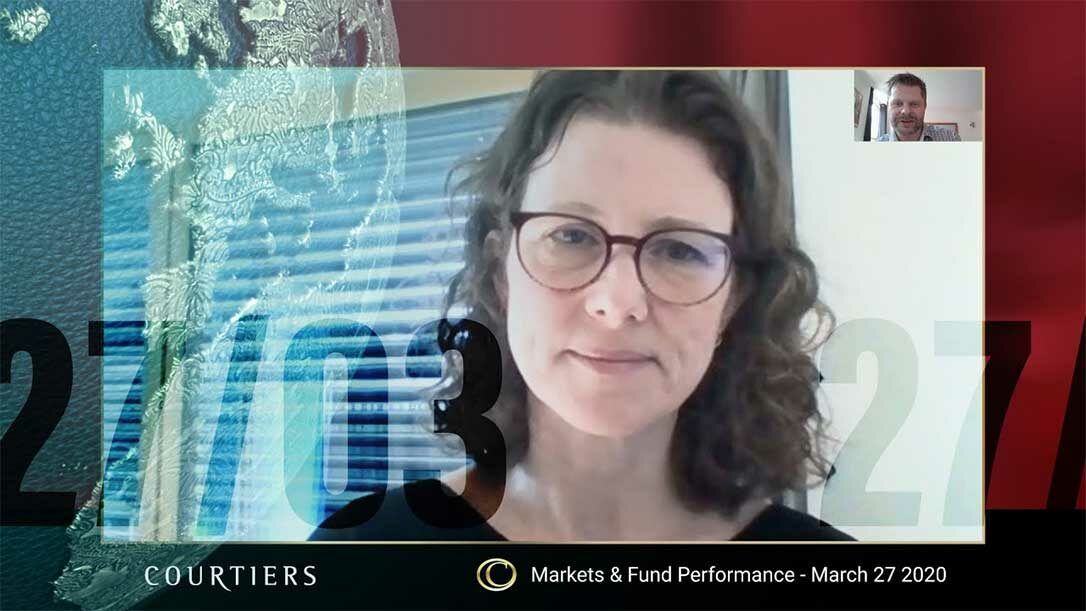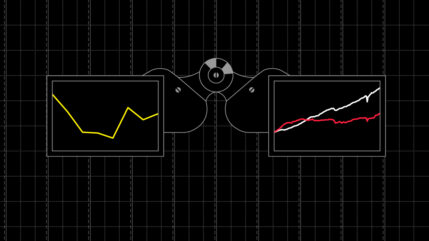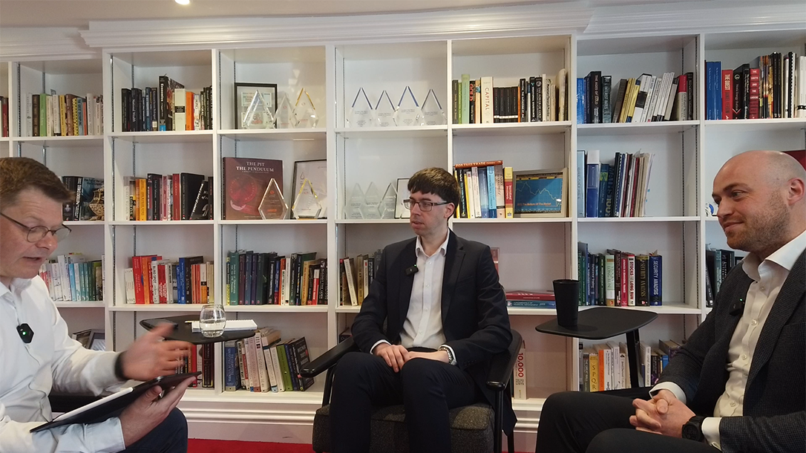Global stock markets have enjoyed another roller-coaster week. The FTSE 100 index fell below 5,000 on Monday. That evening Boris Johnson addressed the nation and locked-down the British public, enforcing stricter social distancing measures.
Tuesday saw a huge reversal of stock market sentiment. The Dow Jones index (US stocks) had its biggest daily rise (11%) since 1933 (the aftermath of the Great Depression) as Donald Trump announced a $2 trillion stimulus package.
In Europe, markets were also positive, consolidating Tuesday’s gains on Wednesday and Thursday too. Yesterday’s EU failure to agree the terms of a stimulus package in Europe brought uncertainty back to markets, compounded by record cases of the virus and, sadly, deaths, across the largest EU nations.
The Vix index, measuring volatility, has remained at elevated levels following the ups and downs this week. As I write, the markets are falling once more but it looks like this week will end on a positive. The Courtiers funds have benefited from these positive moves. Since the FTSE low on Monday, The Courtiers Total Return Growth fund has returned more than 15%. Our Total Return Cautious Risk and Balanced Risk funds have returned more than 8% and 12% respectively since Monday evening. But this only reflects a few days and we are not yet out of the woods.
As China reports fewer new cases of the virus, thoughts now turn to the potential for a second wave, immediately or later this year and how soon economies can return to “business as usual”.
Central banks and governments have already reacted, plunging rates back to record low levels and providing huge monetary and fiscal stimulus packages. If businesses can survive this economic slump, without losing productive capacity (i.e. employees, machines, premises) then they, and the economy, should rebound quickly. However, if productive capacity is lost permanently (businesses going bust) any recovery will be slower. We are mindful of this as we analyse investment opportunities, remembering that the stock markets typically front-run an economic recovery.
We have judiciously increased our exposure to equities, but still retain cash to take advantage of opportunities thrown up by continued market volatility.













